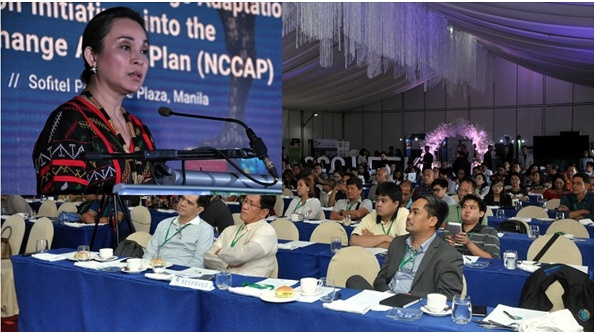
November 18, 2017 Saturday

The Climate Change Commission has lined up various events to mark the observance of this year’s 2017 Global Warming and Climate Change Consciousness (CCC) Week, as mandated by Presidential Proclamation 1667 issued in 2008.
With the theme “Aligning Science, Policy, And Practice For Climate Change and Disaster Resilience,” this year’s CCC Week will be held on November 20 to 24 at the Sofitel Philippine Plaza Manila. It will showcase expert presentations on climate data and the collective efforts of the different sectors of the society in pursuing the sustainable low-carbon and climate-resilient development pathway.
“This year, we are emphasizing the value of science informing policy and practice in the context of climate action. We want to highlight the significance of science in developing climate resiliency strategies and pathways, as well as in inspiring climate action from the different stakeholders,” Climate Change Secretary Emmanuel De Guzman said.
The CCC Week will kick off with a forum focusing on the ongoing efforts to update the National Climate Change Action Plan (NCCAP) and to prepare the country’s Nationally Determined Contributions (NDC) under the United Nations Framework Convention on Climate Change.
The NCCAP is comprehensive action plan outlining the country’s agenda for adaptation and mitigation from 2011 to 2028. ”The NCCAP review was done through several rounds of multi-stakeholder consultations. It will help the Commission determine the gaps and come up with measures to fill it in,” De Guzman explained.
Meanwhile, the NDC is intended to be the Philippines’ commitment to achieve the 1.5°C goal of the Paris Agreement. “Our NDC will define our roadmap on how we intend to transition towards a green economy. It would represent the core of the country’s new development plan,” De Guzman added.
Other forums for the CCC Week will feature the various tools and systems for collating and verifying scientific data; the best mitigation and adaptation practices; and the significant role of businesses, health professionals, indigenous people, youth and the academe in addressing the impacts of climate change.